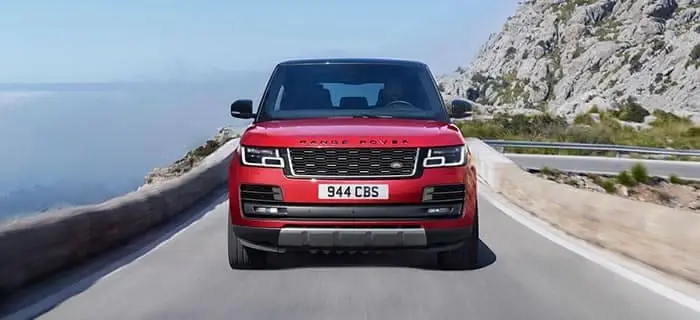5 Ways to Finance Your Land Rover Purchase

When it comes to purchasing a vehicle like a Land Rover, which often sits at the pricier end of the automotive market, finding the right finance method can significantly influence both the overall cost and your enjoyment of the car. Whether you're eyeing the rugged Defender for its adventurous spirit or the sophisticated Range Rover for its luxury, the way you choose to finance your purchase can make a substantial difference. Here are five financing options to consider before you drive off in your new Land Rover.
1. Traditional Auto Loan

A traditional auto loan is one of the most straightforward methods of financing a vehicle. Here’s how it typically works:
- Application Process: You apply for a loan either through a dealership or directly with a financial institution.
- Loan Terms: You’ll be offered terms including interest rates, duration, and monthly payments based on your creditworthiness.
- Pros: Fixed payments make budgeting easier, and you can shop around for the best rates.
- Cons: Interest rates might be higher if your credit score isn’t optimal, and you’re typically locked into long-term commitments.
The key advantage here is the predictability of payments, but be prepared to invest time in shopping around to secure the best deal possible.
2. Leasing

Leasing a Land Rover instead of buying can be an attractive option, especially for luxury or high-end models:
- Monthly Payments: Leases often require lower monthly payments than loans due to lower monthly depreciation costs.
- End of Term Options: At the end of the lease term, you can return the vehicle, purchase it at a predetermined price, or lease a new one.
- Pros: Ability to drive the latest models, lower initial costs, and potentially lower maintenance costs.
- Cons: You don’t own the vehicle at the end unless you buy it, and mileage restrictions can be a limitation for adventurous drivers.
💡 Note: Leases can be particularly useful if you prioritize driving the latest models every few years or if you want to avoid long-term vehicle ownership.
3. Personal Line of Credit

A personal line of credit provides you with a flexible way to finance your Land Rover purchase:
- Flexibility: You can draw funds as needed, which can be advantageous if you’re planning to add aftermarket modifications or negotiate with dealers.
- Interest: Interest is charged only on the amount you borrow, not on the entire credit line, potentially saving money.
- Pros: Offers the flexibility to adjust your financial commitment to the vehicle over time.
- Cons: It might require good credit to qualify, and the interest rates could be higher than auto loans.
4. Home Equity Loan or Line of Credit (HELOC)

If you’re a homeowner, using the equity in your home to finance a car can be financially beneficial:
- Lower Rates: Home equity loans often have lower interest rates than unsecured loans.
- Tax Deductible Interest: Interest might be tax-deductible, but consult with a tax professional.
- Pros: Potentially lower costs and the ability to secure a large amount of financing.
- Cons: Your home is at risk if you default on the loan, and tying up home equity might not be ideal for all.
5. Manufacturer Financing or Incentives

Land Rover and other car manufacturers often offer their own financing deals to move inventory:
- Special Offers: These can include low-interest rates, rebates, or incentives like reduced payments for loyalty customers.
- Pros: You might get exclusive deals not available elsewhere, which can reduce the cost of acquisition.
- Cons: Offers might be tied to specific models, be time-sensitive, or require trade-ins which can limit your choices.
🔔 Note: Always check the fine print of manufacturer financing to ensure the deal truly benefits you beyond the allure of lower immediate payments.
The choice of financing your Land Rover depends on your financial situation, long-term plans for the vehicle, and how you like to manage your finances. Each option has its benefits, whether it's the flexibility of a line of credit, the lower monthly costs of leasing, or the stability of a traditional auto loan. Remember, the cheapest option isn't always the best; consider what aligns best with your lifestyle, driving habits, and financial health. Opting for a thoughtful approach to financing will ensure you enjoy your new Land Rover for years to come without undue financial strain.
What are the key differences between buying and leasing a Land Rover?

+
Buying gives you ownership, allowing you to modify or keep the vehicle indefinitely. Leasing provides lower monthly payments and the flexibility to drive the latest models without committing to long-term ownership. However, with leasing, you’re subject to mileage limits and potential wear-and-tear penalties.
Can I use a personal loan to finance a Land Rover?

+
Yes, personal loans can be used for any purpose, including car purchases. They might not be as competitive as auto loans in terms of rates, but they offer flexibility in how you manage the funds and can be a good choice if you’re looking to refinance later or if the car is not your primary asset.
What should I consider when choosing a financing option?

+
Consider your financial situation, how long you plan to keep the vehicle, your driving habits, and your comfort with potential financial risks. Also, evaluate the total cost of ownership, including interest rates, fees, insurance, maintenance, and fuel costs when comparing financing options.